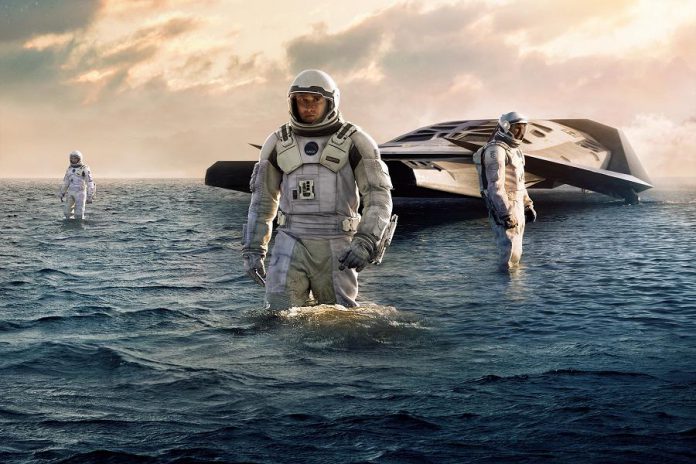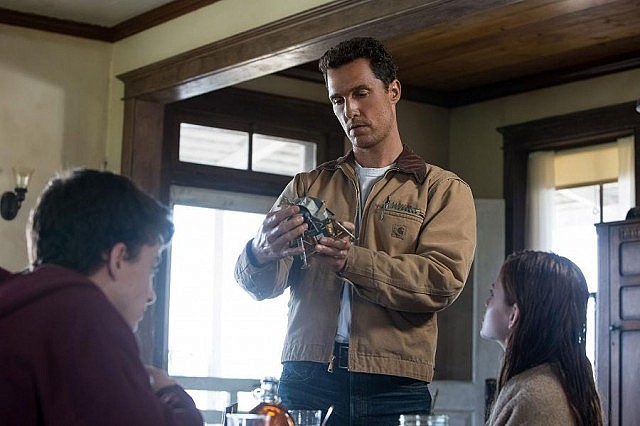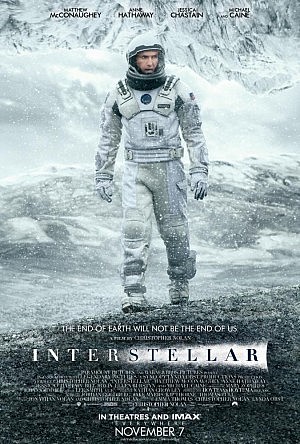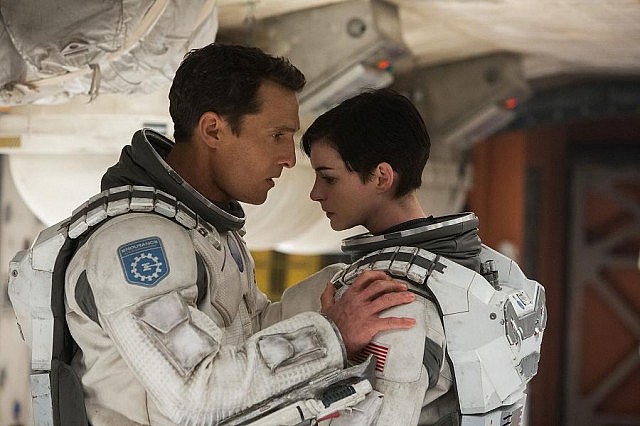
Director Christopher Nolan continues to hold dominion over the alternative pop science fiction kingdom. His latest effort Interstellar sees a muscular revival of an idea that was nearly buried in the 1980s: the serious family film, the kind that Steven Spielberg and George Lucas used to make.
His structurally innovative narratives often provide the fleetingly head-scratching alternative to whatever superhero film screeches into cinemas. Ironic, given the pervasive nature of his decidedly morose Dark Knight trilogy.
Though Nolan’s output has always been more fruitful when he mines his own creative lineage — even though he has essentially been remaking his excellent debut Following with an increasingly inflated budget for the last 15 years.
Nolan is continuously billed as the thinking-person’s action director. If you’re unfamiliar with the work of William Gibson or Phillip K. Dick, then these justifiably lauded set pieces will likely be a revelation. His slate-coloured mindscapes typically strike the correct balance of commercially comprehensive entertainment against the grain of intellectual theorem.
However, his work is refreshingly un-masculine. 2010’s Inception was littered with handsome anti-action stars in tailored suits armed with little more than questionable ideas and coordinating Prada weekend bags.
Interstellar anticipates a desolate future, but its solutions are buried in the past.
Earth, the not-so-distant future: resources on the planet have all but vanished due to some unknown catastrophe (presumably global warming) and what is left of civilization has resorted to an agrarian society in a desperate attempt to cultivate dying strains of crops.
Visually, this is one of the films most successful coups. Envision the hazy dustbowl Kansas of The Wizard of Oz. Everything is buried under an inch of dust and sand, but all the farmers wield futuristic tablets and other intuitive smart devices. Astronaut-turned-farmer Cooper (Matthew McConaughey) lives a simple existence with his children and father-in-law. Yes, it’s another Nolan film where the male protagonist’s wife is dead and you know that Michael Caine is lurking around a corner somewhere.


Memory — and specifically time — are nearly turned inside out as the intrepid team push themselves to their absolute mental limits. That is where the film’s true pleasures lie.
Relative time is the main antagonist of the narrative. The initial planet, Miller, is rendered uninhabitable due to its violent water-covered surface. Its proximity to a gigantic black hole immensely slows the passage of time. Though the exploration team of Cooper and Amelia Brand (Anne Hathaway) only touch down on the planet for several hours, a subsequent 23 years have passed for the crew aboard their orbiting vessel.
Theoretical physicist Kip Thorne acted as the production’s scientific consultant and executive producer to ensure as much factual accuracy as possible. The challenging concepts of gravity and relativity are rendered as digestible as they can be for a blockbuster film.
Interstellar certainly puts you through an emotional grinder, yet miraculously never feels manipulative.
Rather, it presents concise explanations and presentations of uncomfortable ideas: a parent outliving their child (the epilogue portrays this with almost excruciating creativity) or the chemical and physical rationality of love as a driving motivation. Instead of being depicted as a mere cognitive response, it is hypothesized as the transfiguration of a reaction to dimensions that we cannot normally comprehend. If we can only love in the moment, then why do we feel such a magnetic attraction to the deceased?
Nolan and his screenwriter brother Jonathan’s stories are trademarked by their abilities to surprise the audience, but here the great revelation is in a performance.

The emotion is accentuated by another stirring Hans Zimmer score, which has swapped the brass section for a hammering organ that recalls Shoji Yamashiro’s compositions for the seminal Akira.
It’s a shame then that the film completely falls apart and cannot withstand the dissection of repeated viewings. The convoluted pace and well-researched conceits merely disguise its alkaline core: an above-average action film that yearns to be more than another round of Oscar Winners in Space.
The big “twist” is so glaringly obvious that anyone who has seen a movie before could point and scream at it in the opening reel. That this is punctuated by sincerely risible dialogue in the third act nearly ruins the creativity that proceeded it. Jessica Chastain as the adult Murphy screaming “Eureka!” at a moment of climactic discovery is look-away embarrassing.
Interstellar is Kubrickian in its sweep and wisely acknowledges the permanent impact that 2001: A Space Odyssey and Close Encounters of the Third Kind have stamped on the medium, but despite the sumptuous design and belaboured concepts, you can’t help but feel that you’ve just walked out of a belated three-hour sequel to Contact that no one asked for.
Interstellar Trailer
All photos courtesy of Warner Bros.


























